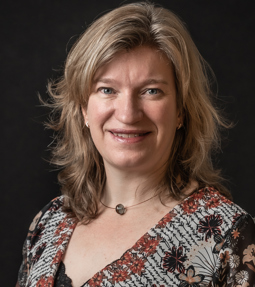Less than half of adults engage in sufficient physical activity, and only a quarter eat enough vegetables and fruits. It is therefore not surprising that more than half of the Dutch population is overweight, with all the associated health risks. If we do nothing to change this, this proportion will continue to rise. However, healthy eating and sufficient exercise do not happen automatically. The context of the living environment and specific target groups is important.
In recent decades, the focus of prevention has primarily been on individual behavior change. This has only been partially successful: not everyone is able to live healthier on their own and maintain it in the long term. Some people lack knowledge, skills, or opportunities. Additionally, the affordability and limited accessibility of facilities to lead a healthy life pose a barrier.
Context-specific implementation of health innovations
The Medical Delta Living Lab 'Vitality Implementation & Technology (VIT) for Life' aims to help shape the living environment of residents in the province of South Holland to make it easier to be more active and eat healthier. The lab examines how specific innovations can best align with the living environments of specific target groups, making it context-dependent.
The living lab investigates how context-oriented innovations can be effectively implemented and how everyone, regardless of background, age, or beliefs, can apply the innovation in their own social and physical environment.
The living lab also aims to demonstrate to future professionals the added value of implementing context-driven innovations, thereby creating a ripple effect. It explores how increased knowledge about context can lead to sustainable changes towards a healthier lifestyle and examines the facilitating and hindering factors involved in implementing innovations.
Making the healthy choice the easy choice
The Medical Delta Living Lab 'Vitality Implementation & Technology (VIT) for Life' builds on the findings of the Medical Delta Living Lab 'Vitality Innovation & Technology for Life,' which initiated successful projects where the environment was often a key part of the innovation.
The Medical Delta Living Lab 'VIT for Life' is taking further steps by focusing on the development and implementation of context-driven social and technological innovations. It investigates how to make the healthy choice the easy choice. This process involves co-creation with end users, intermediary users, students, researchers, and both public and private partners. The emphasis is on nutrition and physical activity.
Goals
The intended outcome is a healthier lifestyle for all residents of South Holland. The Medical Delta Living Lab 'VIT for Life' aims to ensure that:
- everyone in South Holland has access to the implemented innovations;
- knowledge is increased about the factors that contribute to the successful implementation of context-driven innovations among users and (future) professionals;
- there is intensive collaboration between education, research, and public and private partners, which contributes to sustainable innovations and lifestyle promotion.
This living lab originates from the collaboration within the Medical Delta Living Lab VIT for Life
Contact
For more information or if you're interested in participating, please contact one of our innovation managers.







